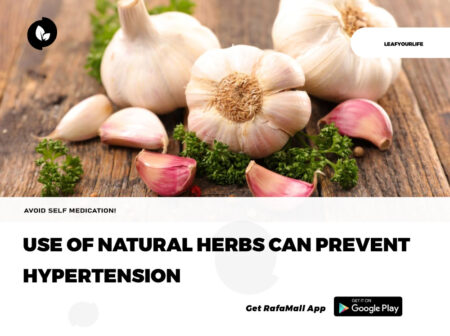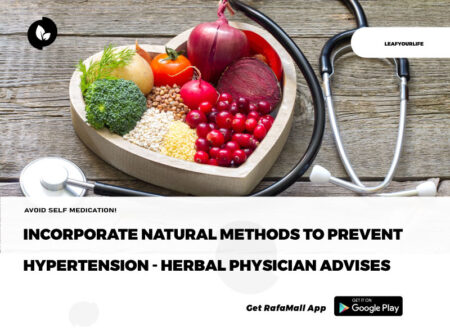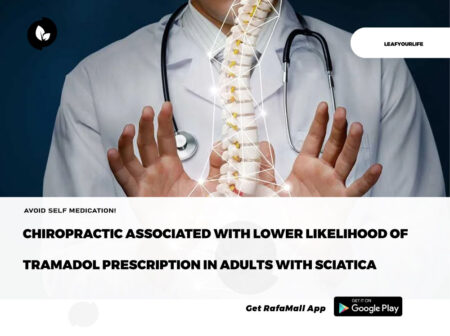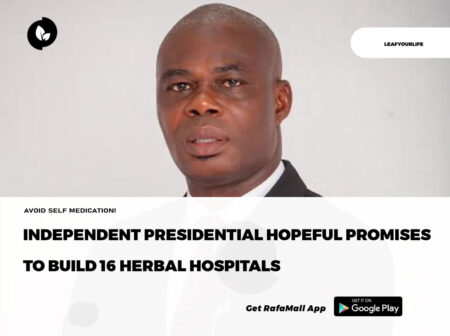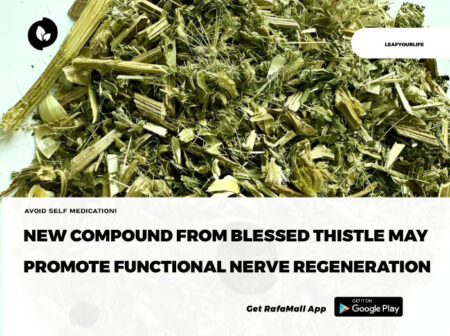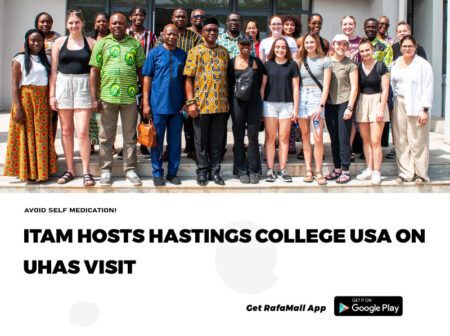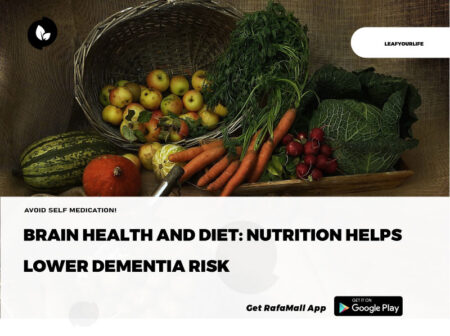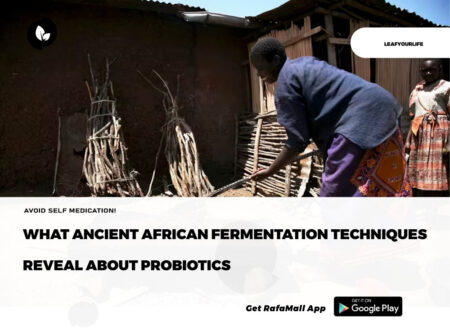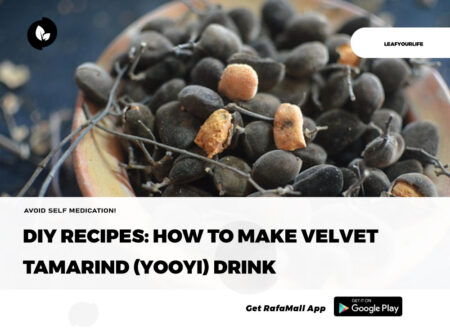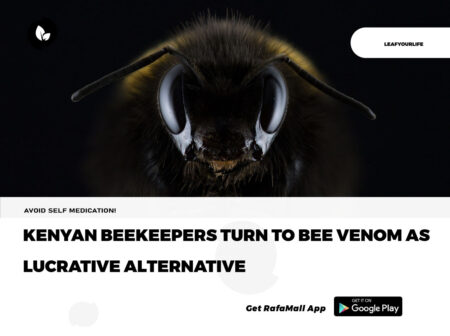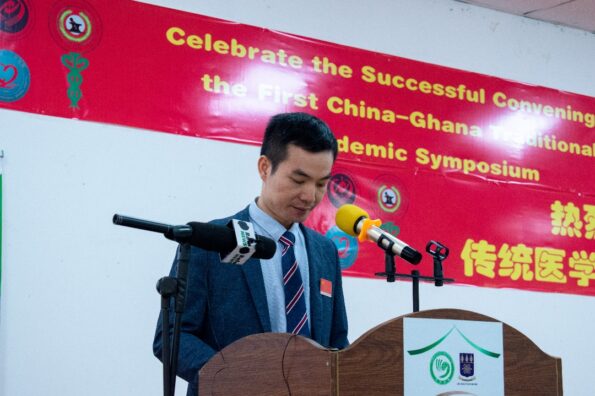
Ghana Association of Medical Herbalists (GAMH) collaborated with the Chinese Medical Team to bring about the first ever China-Ghana Traditional Academic Symposium of its kind. The event was held in the Confucius Institute located in University of Ghana, Accra with Dr. MH Ronald Yeboah as MC kick starting the program at exactly 15:30 GMT.
The president of Ghana Association of Medical Herbalists (GAMH), after the opening prayer gave a welcome address welcoming all who were present and admonished that they enjoy and participate in all sections of this maiden educative seminar.
Dr. Salamatu Nantongma, deputy director of clinical care, Greater Accra, a rep from the Ghana Health Service standing in for the director PPMED of the Ghana Health Service in the person of Dr. Alberta Twum Nyarkoh gave a speech on how they are working to help make herbal medicine a choice for each patient that comes for healthcare in all facilities across the country.
In her speech, she pointed out the practice of herbal medicine as an integral part of healthcare practice that is rooted in our tradition as Ghanaians for centuries and the Medical Herbalist with profound knowledge in this practice as the the guardian and bridge between this ancient practice and the modern healthcare. She elaborated on how there is vast richness of herb plantations grown by individuals across the nation not only for the purpose of sustenance but also as a reservoir for potent remedies for maladies that can be fell upon and used repeatedly.
She went on to make it known that Ghana Health Service has developed a tool called the Holistic Assessment tool that is used to access the performance of every hospital within the country, where all centers are tasked with the primary mandatory responsibility for giving space for the establishment of herbal centers in all government healthcare centers. This is in line with the GHS’ efforts to enhance and integrate herbal medical practice in the healthcare system which also aligns seamlessly to the WHO’s call for more comprehensive and integrative approach to healthcare recognizing the importance of traditional and comprehensive medicine.
An example was made of the addition of herbal treatment to the malaria elimination program to fight against malaria in the country. She encouraged to do more as indigenes are already using herbal medicine and it makes herbal medicine usually the first line of defense against diseases. She elaborated that the weaknesses of the practice be identified and tackled accordingly.
She encouraged the young association of Ghana’s medical herbalists to keep going no matter what the resistance from all areas they would face to foster a strong fraternity in the healthcare space and also to make herbal medicine a choice for all. To achieve this, she suggested that they all advocate for an increase in research into the efficacy of herbal medicines, develop more standardized practices and programs for even aspiring herbalists and foster collaborations between traditional healers and modern health practitioners. By doing so, we honor our cultural heritage, empower practitioners and ensure a healthier future for all Ghanaians.

She concluded by saying that the medical herbalist practitioner in Ghana is not just a practitioner of ancient wisdom, they are stewards of our cultural legacy and champions of holistic health. Let us unite in our efforts to reorganize, respect and elevate the role of medical herbalists practitioners, embracing the rich tapestry of healing that has been woven into the fabric of our nation for centuries.
Prof Huang Xiaoqing, director of traditional medicine department, second people’s hospital, Guangdong, China made a presentation on Traditional Chinese Medicine (TCM), explained how the factions of acupuncture, moxibustion and typical Traditional Chinese Medicine corporate together to bring holistic health to clients.
Next on the list was a practical session of acupuncture, moxibustion and chiropractic on a subject by Dr. Chen Gao of the herbal medicine department at Lekma hospital, Ghana and team. This was an exciting moment as it brought about a host of questions from the audience sparking a great interaction session.
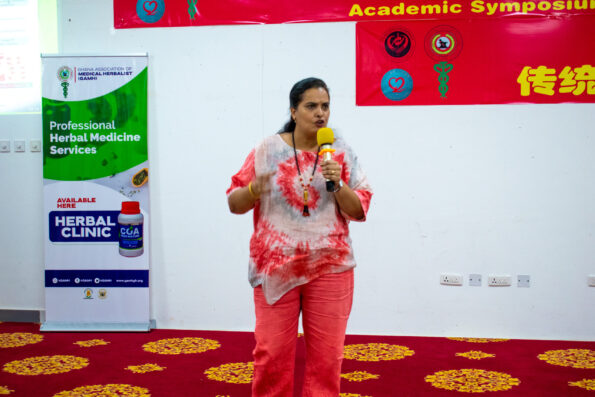
To conclude the formal session was a presentation on ayush products by Dr. Poornima Palaksha and team from Ayush Ghana.
After all was said and done, the second part of informal socialization and a buffet lunch gently proceeded in friendly interactions among all professionals available. The seminar gradually came to an expected end with a prayer and all departed accordingly. A successful maiden China-Ghana Traditional academic symposium it was.

